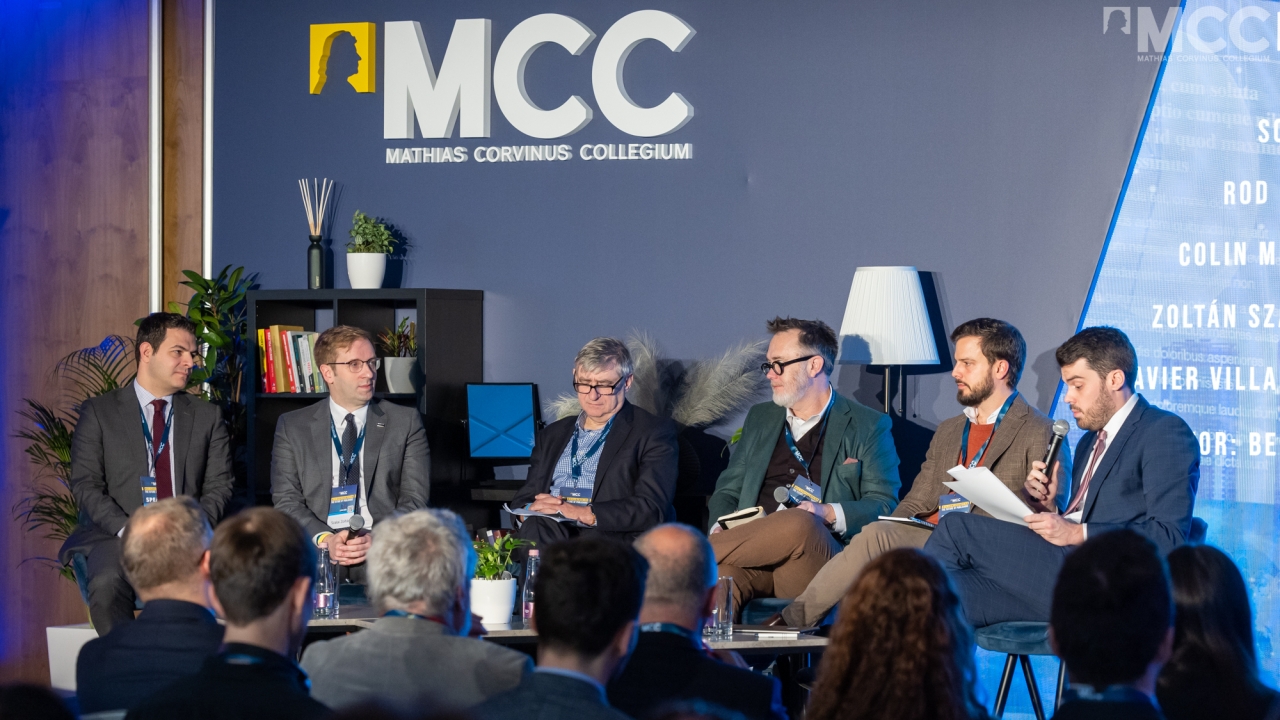
Our goal is to maintain some kind of normality in today's increasingly liberal and increasingly crazy world, where new ideologies are being imposed from all directions.Continue reading

Hungary’s leading talent promotion institution, Mathias Corvinus Collegium (MCC), is holding a two-day conference in Budapest from Wednesday on the future of publishing. On the first day of the conference, many interesting and thought-provoking discussions can be heard, for example about journalism nowadays, and how journalists approach certain topics.
International and national experts, publishers, and editors are present at the MCC event, where they seek answers to the future of publishing. On Wednesday, a discussion panel titled New Formats: Media Revolutionaries was held, where the topic was how the digital transformation of the media world has brought new opportunities for jornalists to become opinion leaders, even without an editorial background. The panel’s attendees took a look at how these new sources are shaping the media world, and how some of these have become the primary source for news consumers, even though they sometimes lack objectivity and facts.
The attendees were Sohrab Ahmari, founder and editor of Compact Magazine; Rod Dreher, senior editor of The American Conservative; Colin Morrison, founder and publisher of Flashes & Flames Media Ltd.; Zoltán Szalai, Editor-in-Chief of Mandiner and Director General at MCC; and Javier Villamor, journalist at 7NN. The moderator was Bence Arany, founder of Mindset Psychology.
As Sohrab Ahmari pointed out in the discussion, we should bring some of the old journalistic values to this new world. He also highlighted the need of local news, something that has been missing in the United States. According to him, the destruction of local news has become a serious problem overseas, even though there would be a great need for this on behalf of the local citizens.
A nationalization of issues can be witnessed in the United States, bringing every global or national news down to the local level.
However, locals would be more interested in what is happening in their town, such as waste management or education, rather than hear about gender ideology. According to Ahmari, local news outlets are also at a disadvantage, since they have to compete against tech giants and big advertisers in order to reach readers, and they are not entirely prepared for this new approach.
Another interesting point of the panel discussion was made by Colin Morrison, who pointed out the problem with advertisements. Ads have become widespread among the media, often disturbing readers’ experience. He said that media outlets are relying heavily on ads which offer a major revenue for them. However, advertisements have corrupted the relationship with readers, and publications have become “hooked” on ads, something that should be changed.
Rod Dreher, who currently lives in Hungary, mentioned the relationship between journalists and readers. According to him, the problem is that
people in the newsroom, writing articles to the audience, have lost connection with those they are writing to.
To add fuel to fire, he said that journalists have started to occasionally despise readers’ attitudes, for example, if readers happen to be conservatives. At the same time, he pointed out that nowadays it is getting harder to determine whether what we hear or read is actually true or a biased report.
Speaking about the truthfulness of news, Javier Villamor shared his view with the audience that journalists have to be honest. According to him, sometimes there is no relation between the fact and how it is expressed in the media, and people usually think that information is perfect, but in truth, it is not. As he pointed out, new perspective is needed among readers.
When it comes to honesty, we must also mention neutrality, something that can rarely be found in the media. Szalai said in the panel discussion that neutrality rarely exists, since journalists do not just write down the dry facts, but they add something to them- a piece of opinion, or other related stories, after which the publication ceases to be neutral. He mentioned that people do not really want neutral news either, since those who prefer conservatism and right-wing politics will read media that offers them such news, and vice versa with liberal readers.
At the same time, there is also the problem of making up news, pointed out Morrison during the discussion, meaning that sometimes journalists, or people who call themselves as such, not only report on news, but make up some of it. Not only is this dangerous, but also that not everyone checks facts, and this is how propaganda appears on non-objective channels, and in the end, everyone can create news.
At the end of the panel, it was agreed by the participants that media should serve the readers. However, it is not a one-way road- a reciprocal relationship is needed. Moreover, media outlets should not assume what readers need – an article might be uncomfortable to some, but people need to hear about uncomfortable truths, too.
Featured photo via Facebook/Mathias Corvinus Collegium